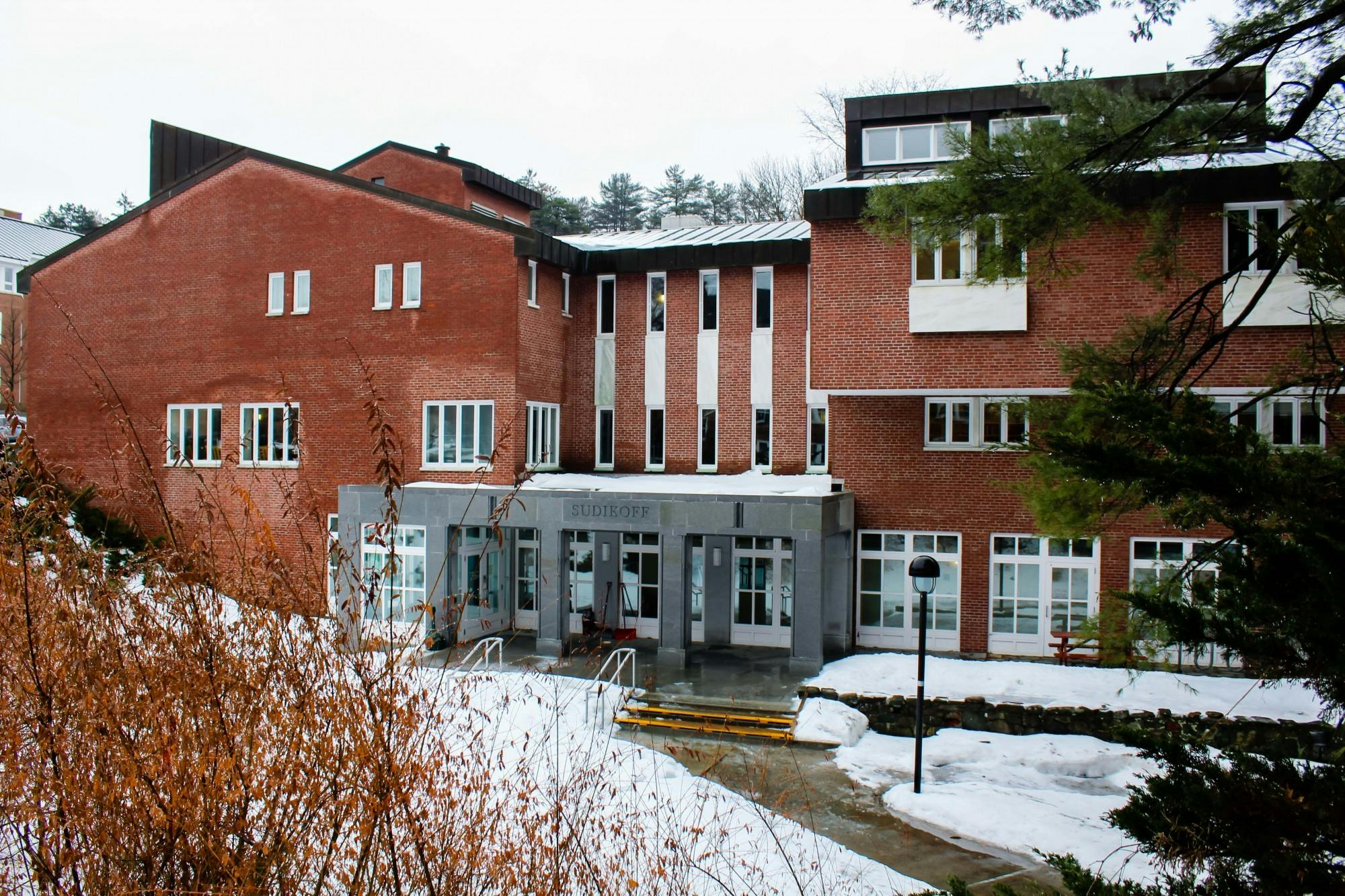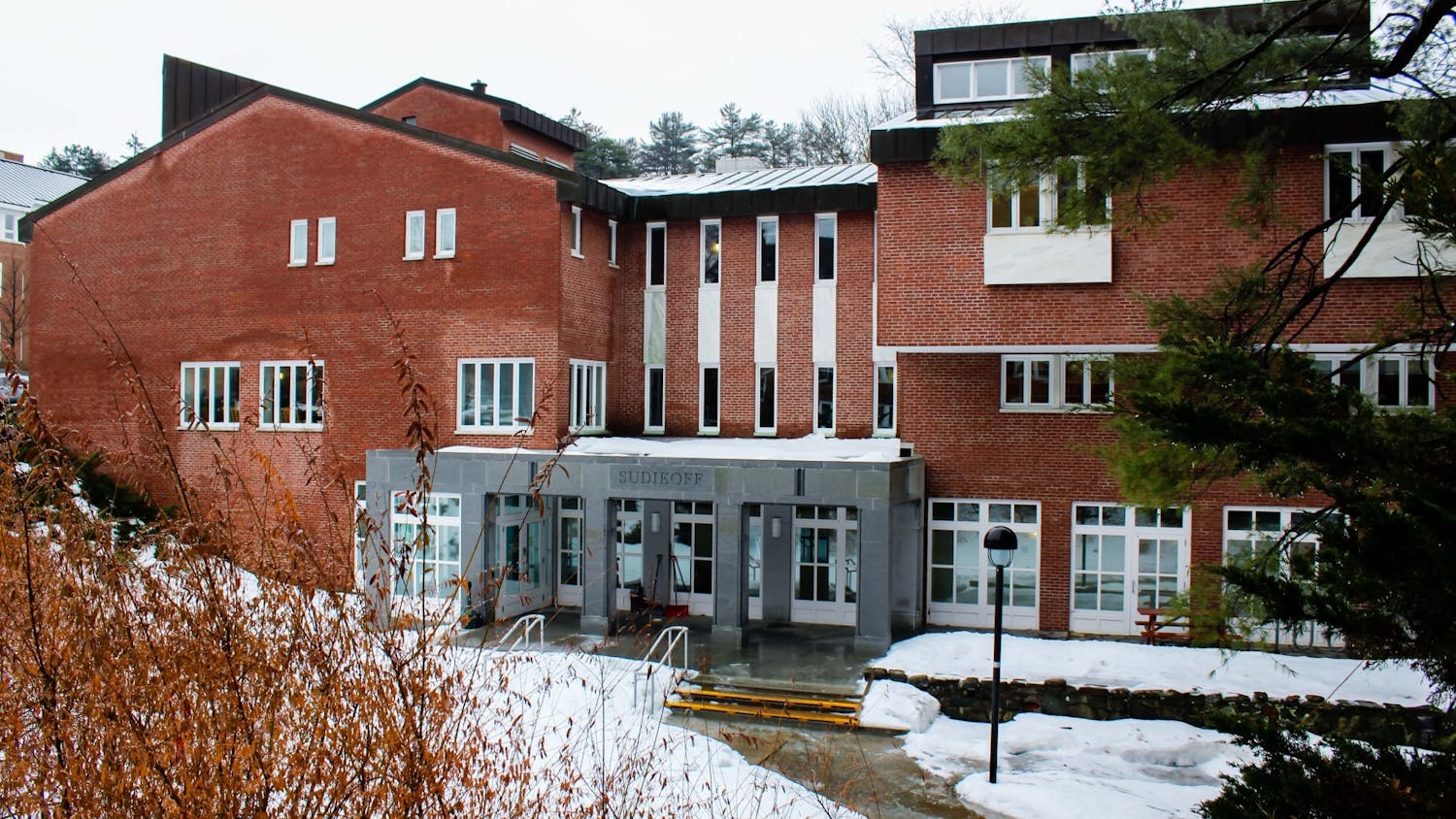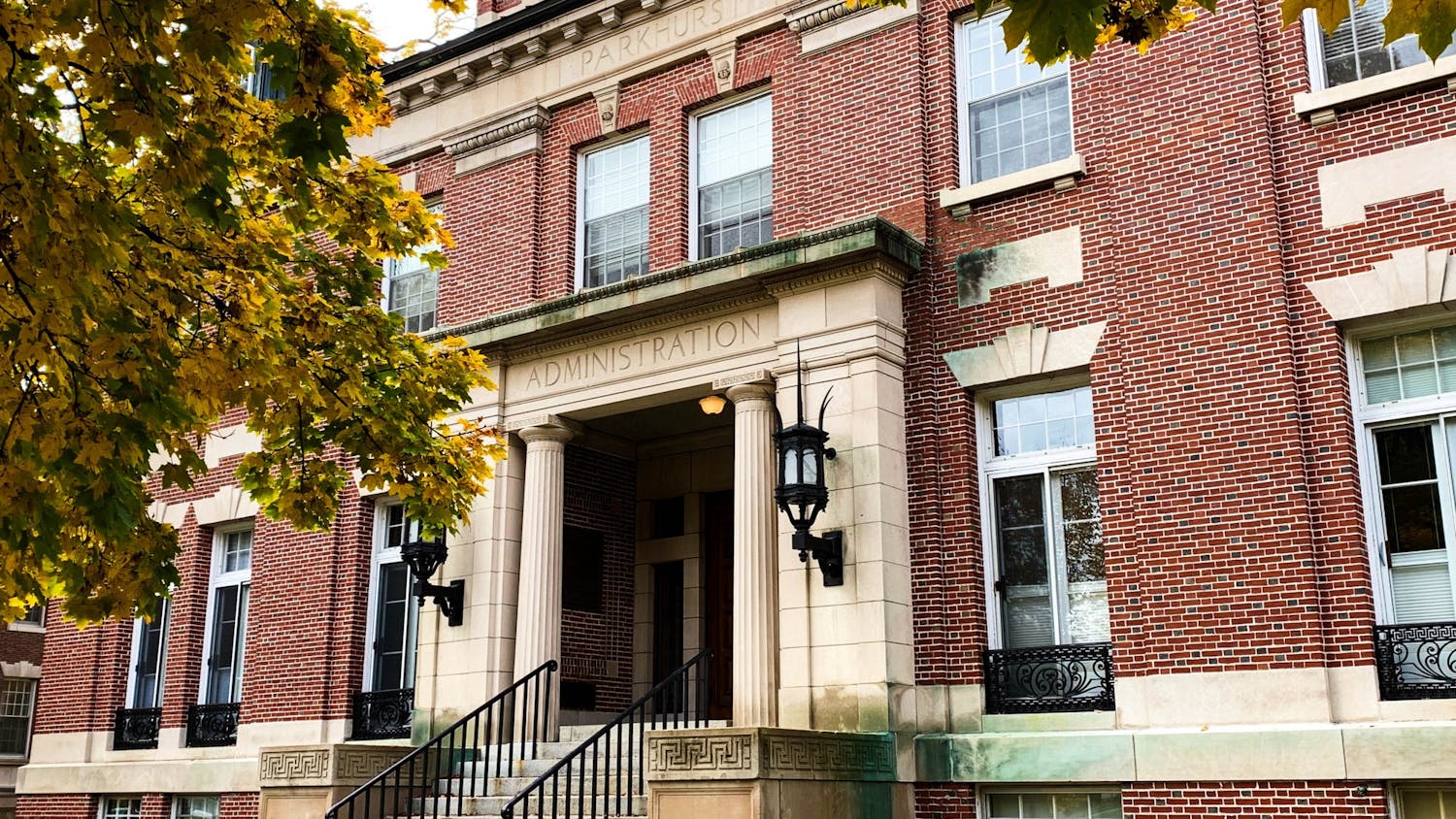An external investigation into former computer science Ph.D. student Maha Hasan Alshawi’s allegations of sexual harassment and retaliation found computer science professor Alberto Quattrini Li not responsible for any of the seven allegations made against him. The 87-page report on the findings of the investigation — which drew on over 1,000 pages of interview transcripts, email exchanges and other evidence — was produced by Cozen O’Connor, a law firm retained by the College last August.
In February 2020, Alshawi filed a report with Title IX against Quattrini Li, but the Title IX office found that the professor’s alleged behavior was not a policy violation. Alshawi first made her allegations against Quattrini Li public in a June 2020 Facebook post, and following a 23-day hunger strike by Alshawi, the College agreed to open an investigation into the allegations against Quattrini Li and other Dartmouth employees on Aug. 5. The investigation into Quattrini Li concluded on March 26, after which both he and Alshawi were given opportunities to respond.
Alshawi also brought allegations of sexual and gender-based harassment and retaliation against seven other Dartmouth employees. Investigations into the allegations against all eight employees began at the same time in August 2020. Maureen Holland and Peter Lim, who work for Cozen O’Connor’s institutional response group, are serving as investigators for all eight investigations.
Alshawi could not be reached for comment on the findings of the investigation. Quattrini Li, Holland and Lim declined to comment.
Findings of the investigation: Quattrini Li
The investigators found Quattrini Li not responsible for any of the seven allegations that Alshawi made against him. In addition to reviewing the executive summary, The Dartmouth obtained the full report from the office of the provost for review.
According to the full report, Alshawi alleged that Quattrini Li had “grabbed or fondled” his genital area during two separate one-on-one meetings in Sudikoff Hall — the first sometime between Nov. 6 and Nov. 11, 2019, and the second on Dec. 9, 2019.
In response to the first allegation of sexual harassment in November, Quattrini Li provided travel receipts that showed he was attending professional conferences in Washington, D.C. and Macau, China between Nov. 4 and Nov. 11, 2019. He also confirmed that he had met with Alshawi on Dec. 9 but reiterated that he would “never engage in such conduct,” according to the full report.
Quattrini Li also told the investigators that on Dec. 11, 2019, Alshawi had disclosed to him that one of her former professors at the American University of Cairo had also “touch[ed] his private area inappropriately” whenever she went into that professor’s office. He noted that this claim mirrored the Title IX complaint that Alshawi filed in February 2020.
The investigators found Quattrini Li not responsible for the first allegation, as he had not been on Dartmouth’s campus within the alleged time window. Although Quattrini Li had met with Alshawi on Dec. 9 as alleged, the investigators also found Quattrini Li not responsible for the second allegation. The investigators cited Alshawi’s failure to disclose the “near-identical report” against her former AUC professor to investigators as reflective of Alshawi’s lack of “credibility and reliability” in her report against Quattrini Li, according to the full report. They also noted that electronic communications between Alshawi and Quattrini Li from June 2019 to Feb. 9, 2020 contradicted Alshawi’s description of “fear[ing] for her safety whenever [she] was in his presence.”
In addition to the two allegations of sexual harassment, Alshawi also stated that Quattrini Li had made Alshawi “uncomfortable” and deleteriously affected her studies, according to the full report.
Alshawi claimed that after she told Quattrini Li that she felt unsafe in his lab, he had used his master key to unlock her office’s door and allowed another student into her office without her permission. While Quattrini Li confirmed to investigators that he had unlocked the door to her office, he said that Alshawi had been working with other graduate students on a robotics project and that he only let the student into her office briefly to allow them to retrieve their robot. The investigators determined that there was “insufficient information” to suggest that this action was a “threat” against Alshawi, according to the full report.
Furthermore, Alshawi alleged that Quattrini Li excluded her from a research trip to Barbados in January 2020. Quattrini Li confirmed to the investigators that Alshawi had indeed been excluded from the trip, but rather because she had not made sufficient progress in her research for the trip to be beneficial to her work. Quattrini Li also noted to the investigators that Alshawi was considering leaving the Ph.D. program at the time of the trip and that Alshawi had not been the only student excluded from the trip. The investigators, according to the full report, determined that Alshawi had been excluded for “legitimate reasons” that did not constitute sexual or gender-based harassment or retaliation.
A subsequent allegation stated that Alshawi told Quattrini Li in January 2020 that she intended to make a report to the Title IX office, though she did not tell him that her intended report was about him. Alshawi claimed that Quattrini Li said he would come with her to report, allegedly to ensure Alshawi did not incriminate him, but Quattrini Li told the investigators that this exchange never happened. The investigators ultimately determined that there was “insufficient evidence” to support Alshawi’s claim. Furthermore, even if this exchange happened as described by Alshawi, the investigators determined that it would not have constituted an “adverse action or threat” against Alshawi because Quattrini Li did not know the report was about him.
In her final allegation against Quattrini Li, Alshawi reported that he attempted to isolate her from her peers. The investigation found insufficient evidence to support this claim.
Alshawi reviewed the initial investigation report on April 3, the executive summary noted, at which point her advisor requested an extension of time to respond. The investigators scheduled two separate Zoom meetings with Alshawi, both of which she did not attend, and she ultimately did not respond to the report. Quattrini Li reviewed the report on March 26 and provided “a brief written response.” Between April 7 and April 16, the investigators finalized the report.
Computer science department chair Devin Balkcom declined to comment on the findings of the investigation.
While not a formal allegation against Quattrini Li, the investigation report also indicates that Alshawi believed she was being surveilled during her time at the College. For example, Alshawi claimed that Quattrini Li once sent an undergraduate student to stalk her in the library.
Additionally, the report detailed Alshawi’s belief that the Egyptian government monitored her while she was at Dartmouth. According to the Title IX record of the Feb. 5, 2020 meeting between Alshawi and deputy Title IX coordinator Gary Sund, which is included in the full investigation report, Alshawi said she believed that someone from Egypt, where she had previously been a student, had contacted Quattrini Li and directed him to make her feel uncomfortable. Additionally, according to the full report, in late October 2019 Alshawi filed multiple reports — one with the department of safety and security and another with the Title IX office — that she was being surveilled by the Egyptian government.
Findings of the investigation: Title IX office
Alshawi also asked the investigators to evaluate the Title IX office’s response to her February 2020 report. As part of that evaluation, Alshawi requested an explanation as to why the Title IX office did not move forward with an investigation into her report.
The investigation found that the office made a “reasonable determination,” according to the full report, that the behavior reported by Alshawi in February 2020 was not a policy violation based on the information available to it at the time. The report notes that the Title IX office asked Alshawi for further details on the incident at the time, but because Alshawi provided no additional information or context, the Title IX office concluded that the touching described by Alshawi was “accidental or incidental.”
“[Alshawi’s] description of the conduct at that time, even if substantiated, did not indicate that the conduct was of a sexual nature,” the executive summary of the investigation stated.
According to the College’s Process for Resolving Reports Against Faculty, the Title IX office must first make a “threshold determination” regarding whether “the facts set forth by the report, if substantiated, constitute a violation of sexual harassment as defined by the Title IX regulations.” Because this threshold was not reached based on the information provided by Alshawi at the time, the Title IX office did not proceed to the subsequent “initial assessment” stage, which would entail a written communication explaining the Title IX office’s analysis.
The investigation found that, despite accurately following the College’s procedures, communications from the Title IX office to Alshawi used the words “initial” and “assessment” to describe the threshold determination stage. As such, the investigation determined that the word choice “could have been more precise.”
“The use of those terms led [Alshawi] to reasonably believe that the Title IX Office had moved to the second step of the two-step process,” the full report states.
Nonetheless, the investigators found that the Title IX office clearly communicated to Alshawi that her report did not pass the threshold determination stage.
Title IX coordinator Kristi Clemens declined to comment on the findings of the investigation.
Students Respond
Attiya Khan ’22, a supporter of Alshawi during her hunger strike, wrote in an emailed statement that she “empathize[s] deeply” with the hardship that the investigation created for all involved parties.
“Ultimately, the fight was for an investigation to occur in the first place,” Khan wrote. “Regardless of the outcome of this individual case, there remain significant institutional barriers that seek to prevent survivors from coming forward.”
Chemistry Ph.D. student Aileen Eagleton, who helped organize the Justice for Maha campaign last summer during Alshawi’s hunger strike, said she thought that the report was not “trauma-informed.” Eagleton added that she felt the report revealed biased treatment of Alshawi, noting that she believed Alwashi did not receive adequate “protection” from the College.
“I felt like everything [Quattrini Li] said, [the investigators] just accepted,” Eagleton said.
Jingyi Peng ’22 — who previously took one of Quattrini Li’s classes, COSC 10, “Problem Solving Via Object-Oriented Programming” — said that while she does not have a strong opinion about the outcome of the investigation, she felt that he was one of the “nicest” professors she has had at Dartmouth. She added that when she had first heard about the investigation, she was “surprised” by the allegations.
“I was also surprised by how quickly the investigation cleared up [Quattrini Li’s name],” Peng said.




